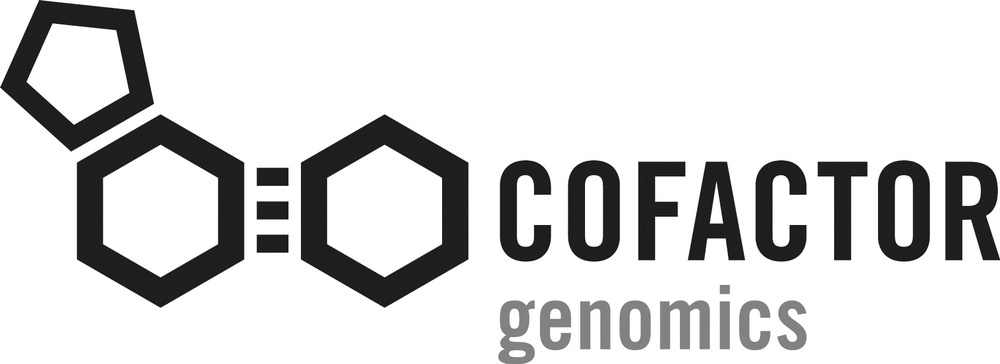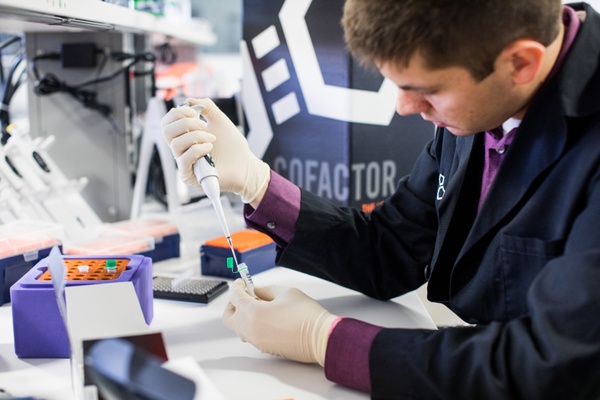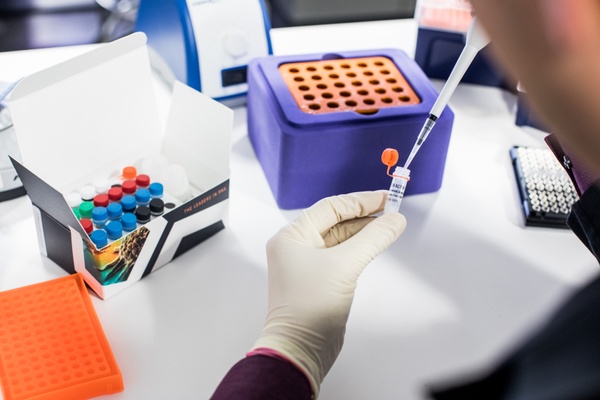SAN FRANCISCO, Calif. – April 16, 2020 – Today, Cofactor Genomics announced the peer-reviewed publication of an analytical validation study demonstrating the performance of its novel RNA-based immune profiling assay, ImmunoPrism®, in the April 2020 issue of the Journal of Molecular Diagnostics. The paper is the first public disclosure of the company’s proprietary methods used for quantifying immune cells in the tumor microenvironment (TME).
Accurate quantification of immune cells from small amounts of tumor tissue has become increasingly important as the role of the immune system in cancer is illuminated. The number of clinical trials under the umbrella of immune-oncology has exploded since 2014, with more than five times the number of trials now starting each year worldwide, and a total of more than 1,000 trials underway in 2018 alone, according to Kantar Health. Cofactor’s technology affords a number of advantages over other approaches, using less tissue and achieving higher sensitivity and specificity in detecting even difficult-to-quantify cell types, such as M2 macrophages.
Technical validation of the ImmunoPrism assay represents a key step in Cofactor’s efforts towards developing predictive diagnostics. The ImmunoPrism platform is the underlying technology used in recently presented data that showed improved performance over the on-label PD-L1 immunohistochemistry (IHC) assay in predicting response to anti-PD-1 therapy in recurrent and metastatic squamous cell carcinoma of the head and neck (RM-SCCHN).
“Analytical validation is a requirement for any assay to be used in routine clinical care or in clinical trials leading up to routine clinical care," stated Andrew Aijian, Partner at DeciBio, a strategy consulting and market research firm focused on precision medicine. "A robust assay that has already been rigorously validated significantly lowers the barriers to adoption and makes sophisticated biomarkers, such as immune gene expression models, more broadly accessible."
The analytical validation study utilized a series of increasingly more complex control mixtures to demonstrate performance of Cofactor’s RNA models, starting first with known cell mixtures from purified peripheral blood mononuclear cells (PBMCs), then adding interfering substances such as non-immune cells, genomic DNA, and ribosomal RNA. Importantly, the study also leveraged viable dissociated tumor tissue for orthogonal validation compared to the gold standard, flow cytometry, which showed immune cell models in the assay maintain their performance in the tumor microenvironment. Finally, formalin-fixed and paraffin embedded (FFPE) tissue, which represents the most common clinical sample format, was used for orthogonal comparison to immunohistochemistry (IHC). In the publication, metrics including limit of detection, reportable range, and intra- and inter-operator reproducibility were reported for the assay.
“The results of this validation study demonstrate that our expectations of improved performance for multidimensional RNA models over single-analyte approaches are not hypothetical - they are real and quantifiable,” stated Jon Armstrong, Cofactor Genomics Chief Scientific Officer and one of the first authors on the paper. “ImmunoPrism represents the ability to bring the positive attributes of flow cytometry to commonly available FFPE materials.”
The ImmunoPrism assay may be ordered through Cofactor’s CAP/CLIA accredited laboratory. It is also available as a reagent kit and cloud-based informatics that may be validated in any laboratory with Illumina sequencing capabilities.
About Cofactor Genomics
Cofactor Genomics is bridging the precision medicine gap by building diagnostic tools to match the right patient to the right treatment at the right time. Predicting patient response to therapy currently relies on isolated, single-analyte biomarkers that have failed to deliver accurate therapy response predictions, resulting in unnecessary healthcare costs, and most harmfully, negative outcomes for patients. Cofactor’s products use Predictive Immune Modeling, which leverages RNA data and machine learning to combine biological signals, creating multidimensional biomarkers to deliver on the promise of precision medicine. Cofactor Genomics offers its full-service molecular, informatic, and database tools to make drug discovery, clinical trials and therapy selection more successful.
About the Journal of Molecular Diagnostics
The Journal of Molecular Diagnostics, the official publication of the Association for Molecular Pathology (AMP), co-owned by the American Society for Investigative Pathology (ASIP), seeks to publish high quality original papers on scientific advances in the translation and validation of molecular discoveries in medicine into the clinical diagnostic setting, and the description and application of technological advances in the field of molecular diagnostic medicine. For more information visit: https://jmd.amjpathol.org/





